Resources
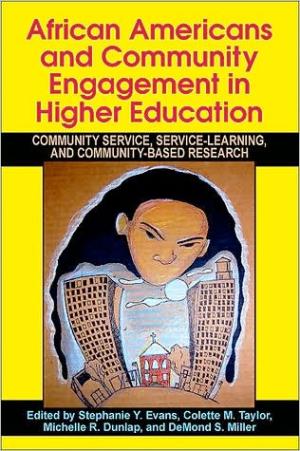
This book discusses race and its roles in university-community partnerships. The contributors take a collaborative, interdisciplinary, and multiregional approach that allows students, agency staff, community constituents, faculty, and campus administrators an opportunity to reflect on and redefine what impact African American identity-in the academy and in the community-has on various forms of community engagement. From historic concepts of "race uplift" to contemporary debates about racialized perceptions of need, they argue that African American identity plays a significant role. In representing best practices, recommendations, personal insight, and informed warnings about building sustainable and mutually beneficial relationships, the contributors provide a cogent platform from which to encourage the difficult and much-needed inclusion of race in dialogues of national service and community engagement. "This book validates the African proverb 'it takes a village to raise a child.' The topics are right on the mark and highlight the benefits of service-learning as an instrument of individual and community involvement and empowerment." - Festus E. Obiakor, coeditor of Culturally Responsive Literacy Instruction (From the Publisher)
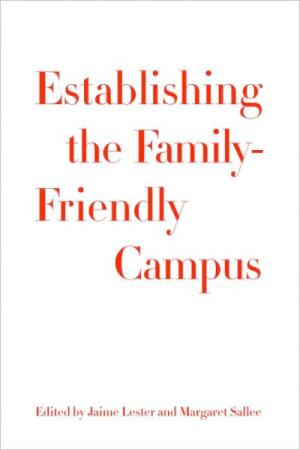
The impact of changing demographics in higher education, and the importance of family-friendly policies, is well documented. There is an urgent need to keep PhDs in the higher education sector, to recruit talented scholars into academia, and retain them over the course of their academic careers. The key is instituting policies to enable all constituencies to balance work and personal responsibilities. This book covers the range of issues faced by all generations in academe, from PhD students, to the "sandwich generation" (those caring for children and aging parents simultaneously) through to older faculty and administrators. It addresses the causes for women faculty with children leaving the academy at a disproportionately higher rate than men, the conflicts women face between academic work and motherhood, and the difficulties they encounter in reentering the academy after having left the professoriate. In examining the need for family-friendly policies, this book documents the "best practices" currently in use at institutions across the United States. Each chapter highlights practices and programs from a variety of institutions and institutional types that address the needs of a more inclusive family-friendly campus and offers suggestions to others who are implementing similar change on their campuses. These examples provide context so that readers no longer have to develop practices in isolation, and without evidence of their effectiveness. The editors suggest that the most successful campuses are those that utilize a work-life systems framework to meet the needs of its employees. They also point to future growth trends, including expanding the focusfrom faculty and staff to incorporate all in the campus community. This book offers guidance to department chairs, deans, faculty, administrators, and graduate students on setting a family-friendly agenda, and models for implementation. Contributors include Emily Arms, Kathleen Beauchesne, Jill Bickett, Sharon A. Dannels, Mariko Dawson Zare, Karie Frasch, Marc Goulden, Jeni Hart, Caryn Jung, Jaime Lester, Sharon A. McDade, Jean McLaughlin, Mary Ann Mason, Sharon Page-Medrich, Kate Quinn, Margaret Sallee, Randi Shapiro, Angelica Stacy, Dave Swihart, Gloria D. Thomas, Darci Thompson. (From the Publisher)
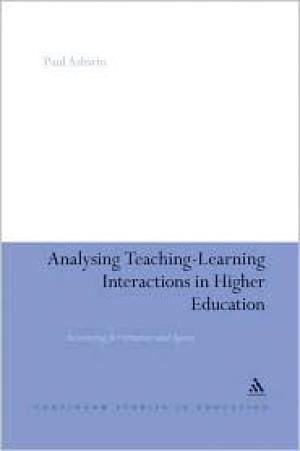
A key monograph investigating the research, development, policy and practice of teaching and learning in Higher Education. (From the Publisher)
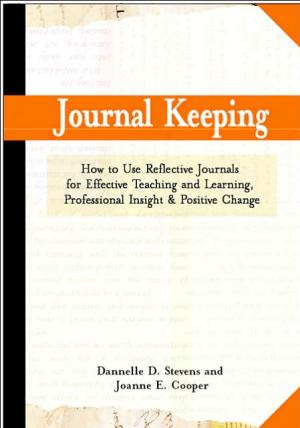
** By the authors of the acclaimed Introduction to Rubrics ** Major growth of interest in keeping journals or diaries for personal reflection and growth; and as a teaching tool ** Will appeal to college faculty, administrators and teachers One of the most powerful ways to learn, reflect and make sense of our lives is through journal keeping. This book presents the potential uses and benefits of journals for personal and professional development-particularly for those in academic life; and demonstrates journals' potential to foster college students' learning, fluency and voice, and creative thinking. In professional life, a journal helps to organize, prioritize and address the many expectations of a faculty member's or administrator's roles. Journals are effective for developing time management skills, building problem-solving skills, fostering insight, and decreasing stress. Both writing and rereading journal entries allow the journal keeper to document thinking; to track changes and review observations; and to examine assumptions and so gain fresh perspectives and insights over past events. The authors present the background to help readers make an informed decision about the value of journals and to determine whether journals will fit appropriately with their teaching objectives or help manage their personal and professional lives. They offer insights and advice on selecting the format or formats and techniques most appropriate for the reader's purposes. (From the Publisher)
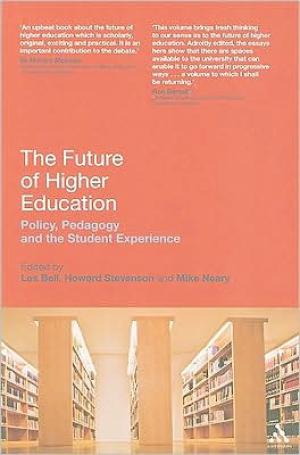
The definitive coursebook for Higher Education. (From the Publisher)
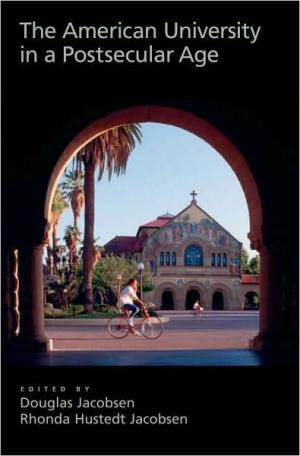
For much of the twentieth century, it was assumed that higher education was and ought to be a secular enterprise, but that approach no longer suffices. The culture has shifted, and contemporary college and university students are increasingly bringing religious and spiritual questions to campus. In response, college and university leaders are exploring anew the relationship between religion and higher education. The American University in a Postsecular Age grapples with key questions: —How religious or irreligious are faculty and students today? What level of religious literacy should be expected from students? —Can religion be allowed into the classroom without being disruptive? —Should colleges and universities help students reflect on their own faith? —Is religion antithetical to critical inquiry? —Can religion have a positive role to play in higher education? This is a state-of-the-art introduction to the national discussion about religion and higher education. Leading scholars and top educators express a wide spectrum of opinions that reflect the best current thinking. Introductory and concluding essays by the editors describe the postsecular character of our age and propose a comprehensive framework intended to facilitate ongoing conversation. (From the Publisher)
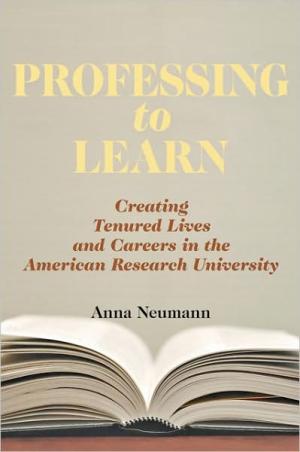
Research, teaching, service, and public outreach — all are aspects of being a tenured professor. But this list of responsibilities is missing a central component: actual scholarly learning — disciplinary knowledge that faculty teach, explore in research, and share with the academic community. How do professors pursue such learning when they must give their attention as well to administrative and other obligations? Professing to Learn explores university professors' scholarly growth and learning in the years immediately following the award of tenure, a crucial period that has a lasting impact on the academic career. Some launch from this point to multiple accomplishments and accolades, while others falter, their academic pursuits stalled. What contributes to these different outcomes? Drawing on interviews with seventy-eight professors in diverse disciplines and fields at five major American research universities, Anna Neumann describes how tenured faculty shape and disseminate their own disciplinary knowledge while attending committee meetings, grading exams, holding office hours, administering programs and departments, and negotiating with colleagues. By exploring the intellectual activities pursued by these faculty and their ongoing efforts to develop and define their academic interests, Professing to Learn directs the attention of higher education professionals and policy makers to the core aim of higher education: the creation of academic knowledge through research, teaching, and service. (From the Publisher)
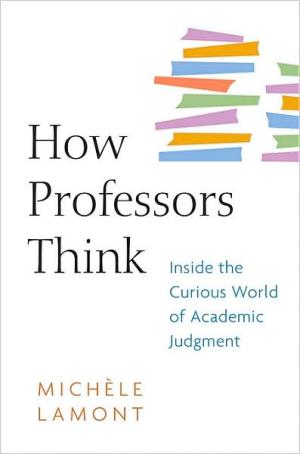
Excellence. Originality. Intelligence. Everyone in academia stresses quality. But what exactly is it, and how do professors identify it? In the academic evaluation system known as “peer review,” highly respected professors pass judgment, usually confidentially, on the work of others. But only those present in the deliberative chambers know exactly what is said. Michèle Lamont observed deliberations for fellowships and research grants, and interviewed panel members at length. In How Professors Think, she reveals what she discovered about this secretive, powerful, peculiar world. Anthropologists, political scientists, literary scholars, economists, historians, and philosophers don’t share the same standards. Economists prefer mathematical models, historians favor different kinds of evidence, and philosophers don’t care much if only other philosophers understand them. But when they come together for peer assessment, academics are expected to explain their criteria, respect each other’s expertise, and guard against admiring only work that resembles their own. They must decide: Is the research original and important? Brave, or glib? Timely, or merely trendy? Pro-diversity or interdisciplinary enough? Judging quality isn’t robotically rational; it’s emotional, cognitive, and social, too. Yet most academics’ self-respect is rooted in their ability to analyze complexity and recognize quality, in order to come to the fairest decisions about that elusive god, “excellence.” In How Professors Think, Lamont aims to illuminate the confidential process of evaluation and to push thegatekeepers to both better understand and perform their role. (From the Publisher)
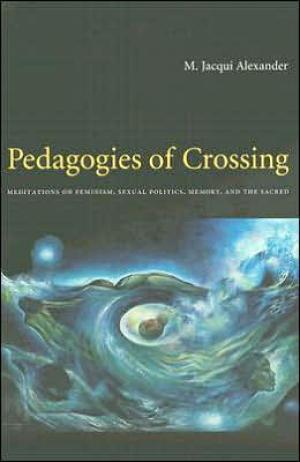
M. Jacqui Alexander is one of the most important theorists of transnational feminism working today. Pedagogies of Crossing brings together essays she has written over the past decade, uniting her incisive critiques, which have had such a profound impact on feminist, queer, and critical race theories, with some of her more recent work. In this landmark interdisciplinary volume, Alexander points to a number of critical imperatives made all the more urgent by contemporary manifestations of neoimperialism and neocolonialism. Among these are the need for North American feminism and queer studies to take up transnational frameworks that foreground questions of colonialism, political economy, and racial formation; for a thorough re-conceptualization of modernity to account for the heteronormative regulatory practices of modern state formations; and for feminists to wrestle with the spiritual dimensions of experience and the meaning of sacred subjectivity. In these meditations, Alexander deftly unites large, often contradictory, historical processes across time and space. She focuses on the criminalization of queer communities in both the United States and the Caribbean in ways that prompt us to rethink how modernity invents its own traditions; she juxtaposes the political organizing and consciousness of women workers in global factories in Mexico, the Caribbean, and Canada with the pressing need for those in the academic factory to teach for social justice; she reflects on the limits and failures of liberal pluralism; and she presents original and compelling arguments that show how and why transgenerational memory is an indispensable spiritual practice within differently constituted women-of-color communities as it operates as a powerful antidote to oppression. In this multifaceted, visionary book, Alexander maps the terrain of alternative histories and offers new forms of knowledge with which to mold alternative futures. (From the Publisher)
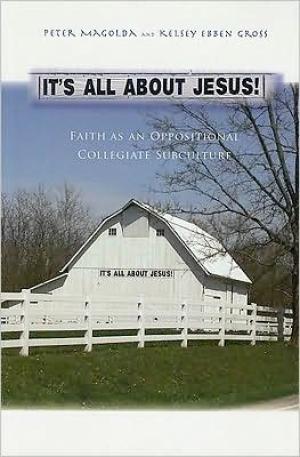
What it is like to be a collegian involved in a Christian organization on a public college campus? What roles do Christian organizations play in the lives of college students enrolled in a public college? What are evangelical student organizations’ political agendas, and how do they mobilize members to advance these agendas? What is the optimal equilibrium between the secular and the sacred within public higher education? What constitutes safe space for evangelical students, and who should provide this space? This book presents a two-year ethnographic study of a collegiate evangelical student organization on a public university, authored by two “non-evangelicals.” The authors provide a glimpse into the lives of college students who join evangelical student organizations and who subscribe to an evangelical way of life during their college years. They offer empirically derived insights as to how students’ participation in a homogeneous evangelical student organization enhances their satisfaction of their collegiate experience and helps them develop important life lessons and skills. Ironically, while Christian students represent the religious majority on the campus under study, Christian organizations on this campus mobilize members by capitalizing on members’ shared sense of marginalization, and position themselves as cultural outsiders. This evangelical student organization serves as a safe space for students to express their faith within the larger secular university setting. The narratives and interpretations aim not only to enrich understanding of a particular student organization but more importantly to spark intellectual discourse about the valueof faith-based organizations within public higher education. The role of religion in public higher education, student involvement in the co-curriculum, and peer education are three examples of critical issues in higher education for which this idiosyncratic case study offers broad understanding. It’s All About Jesus! targets multiple audiences – both sacred and secular. For readers unfamiliar with evangelical collegiate organizations and the students they serve, the authors hope the narratives make the unfamiliar familiar and the dubious obvious. For evangelicals, the authors hope that the thickly described narratives not only make the familiar, familiar and the obvious, obvious, but also uncover the tacit meaning embedded in these familiar, but seldom examined subculture rituals. The authors hope this book spurs discussion on topics such as campus power and politics, how organizations interact with the secular world around them, and how members can improve their organizations. Additionally, this text urges secular readers in student affairs to consider the many benefits, as well as liabilities, of “parachurches” as co-curricular learning sites on campus. Lastly, given that the authors lay bare their methodology, their use of theory, and the tensions between their perspectives and those of the participants, this book will serve as a compelling case study for courses on qualitative research within religion studies, anthropology, sociology, and cultural studies fields. (From the Publisher)